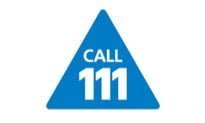More GP leaders raise concerns about 111
- 2 February 2012

The BMA’s General Practitioner Committee is to consider its position on NHS 111 after one of its members called for a halt to the programme.
However, the Department of Health says planning for the April 2013 roll-out will go ahead.
GPC negotiator Dr Peter Holden said the issue of NHS 111 was discussed at the last meeting of the committee and the group would be putting out a statement about its position next week.
But he confirmed that he had personally called for a halt to the programme.
The moves come hot on the heels of an NHS Alliance survey, which revealed clinical commissioners’ lack of engagement with the telephone triage and advice service.
Dr Paul Cundy, who is joint chairman of the BMA and RCGP’s joint IT committee, told EHI Primary Care that calls to halt the service were “entirely justified.”
“The feedback we are getting from out-of-hours services and GPs on the ground is that it’s increasing workload,” he said.
Inappropriate referrals meant people were being referred to their GP or A&E department when it was “completely unnecessary.”
Dr Cundy also said the best people to triage patients were GPs. “There needs to be resourcing for systems that enable these calls to be answered by GPs,” he added.
“Clinical commissioning groups are meant to be doing the commissioning, but they are told they have to buy this [NHS 111] when many GPs probably don’t want to.”
A DH spokesperson told eHealth Insider that a majority of clinical commissioners were already engaged in the NHS 111 project, which would bring “significant benefit to patients.”
“The pilots are enabling us to provide a basis for local design of solutions, and CCGs are already positive about how this will enable them to improve access to emergency and unscheduled care,” the spokesperson said.
“We will ensure that although planning will go ahead for roll-out from April 2013, this will be achieved with CCGs in a leadership role."
This week, NHS Direct released information about serious incidents in its NHS 111 pilots so far.
These included an ambulance not being dispatched in the North West, a delay in booking out-of-hours appointments and incidents where patients should have been recommended a higher level of care.
NHS Direct chief nurse Tricia Hamilton said NHS 111 was a new service, using a new system.
“As with any new service, you would expect to see incidents being identified and reviewed as part of continuous improvement,” she said. “This is the sign that the service is learning and developing as experience is accumulated.”
Also this week, Harmoni and the London Central and West Urgent Care Collaborative were announced as the successful bidders to run NHS 111 pilots in Inner North West London primary care trusts – Hammersmith and Fulham, Kensington and Chelsea and Westminster – and NHS Hillingdon.
The pilots were suspended last November because the contracts were awarded without a tender process, so might have been open to legal challenge.
Dr Ian Goodman, chair of Hillingdon Clinical Commissioning Group, said: “The huge amount of work that has been done so far means that we will be looking to launch the NHS 111 service as quickly as possible.
“Our GPs and other stakeholders have bought into the concept of the new service and we look forward to seeing it in operation.”




